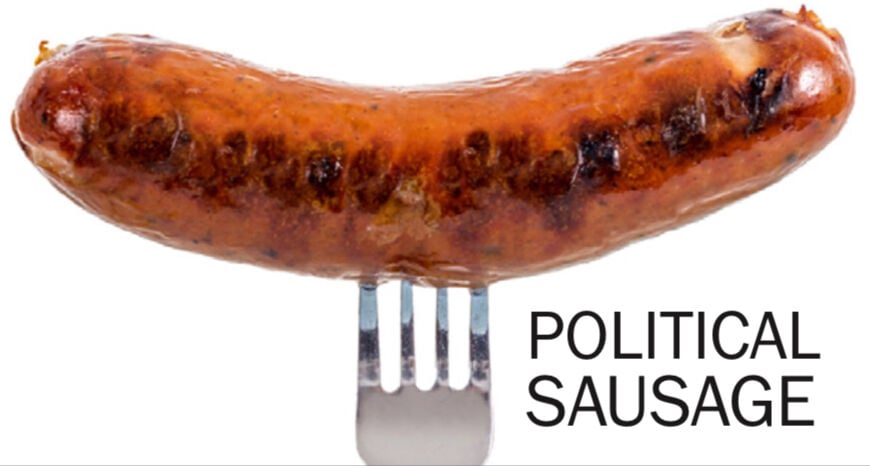A $1.3 million project to upgrade and expand the terminal at Raleigh County Memorial Airport should be completed by June, according to the airport’s assistant manager, Robert Runion.
A $1.3 million project to upgrade and expand the terminal at Raleigh County Memorial Airport should be completed by June, according to the air…
Wyoming County Schools is plugging two electric school buses into their fleet.
Chef Stephen Gustard moved to Greenbrier County 25 years ago to attend The Greenbrier's Culinary Apprenticeship Program. He went on to build a…
oak hill – “Feed me, Seymour.”
CHARLESTON, W.Va. – The State Historic Preservation Office (SHPO) is extending the applicati…
Raleigh County Schools was awarded roughly $2 million in state funding for a waterline proje…
Alphabet and Microsoft led the U.S. stock market to its first winning week in the last four …
BECKLEY, W.Va. - Xavier Sanders, 24, of Charlotte, North Carolina, was sentenced Friday to t…
Alex Garland is a writer and director who has produced some of the most profound works of sc…
Nicholas County, W.Va. - County Route 19/8, Peach Orchard Road in Nicholas County, will have…
United Mine Workers President Cecil Roberts contends newly-final federal rules on power plan…
beckley, w.va. – Beckley ARH Hospital will host its first-ever Stroke Support Group meeting …
beckley, w.va. – U.S. Sen. Joe Manchin, D-W.Va., spoke at the American Postal Workers Union’…
APPALACHIA – A group of 60 organizations and elected officials spanning the Appalachian regi…
charleston, w.va. – A verbal complaint was made Thursday to the W.Va. Secretary of State’s O…
Donald Trump on Thursday claimed a 2017 white nationalist rally in Charlottesville, Virginia…
Student protests over the war in Gaza have created a new and unpredictable challenge for Pre…
Former West Virginia coal executive Don Blankenship is making another attempt to win a U.S. …
Former U.S. Rep. George Santos says he's dropping his longshot bid to return to Congress, mo…
 |
 |
Special Publications
A guide to area businesses who cater to those 50 & over.
A resource to help readers find medical professionals in the area.
A look at local high school hoops teams - both boys and girls!
Online Poll
Trending Videos
Sports
MORGANTOWN — While this year's West Virginia University's Gold-Blue Spring Football Game has turned into a concert, food fair, shopping mall a…
Defense became the focus of the NFL draft on Friday night after a record-setting 23 offensive players were selected in the first round. The At…
ORCHARD PARK, N.Y. (AP) — The Buffalo Bills elected not to trade back in the NFL draft order…
BEREA, Ohio (AP) — The Cleveland Browns selected two players in the NFL draft forever connec…
UNDATED (AP) — The long wait for the first running back to be drafted is over. The Carolina …
UNDATED (AP) — The Southeastern Conference’s four top 10 teams in last season’s final AP Top…
Nathan MacKinnon and Valeri Nichushkin scored on the power play during a five-goal, third-pe…
Premium Text Ads
Most Popular
Are you ready for some movies this summer? There’s action-adventure, romance, horror, franchises and anniversary re-releases of some of your f…
Alex Garland is a writer and director who has produced some of the most profound works of science-fiction in literature and film.
Nearly three decades after Jerry Seinfeld was, in one episode of “Seinfeld,” cajoled into bo…
For music fans, John Oates is most recognizable as one-half of the Grammy-nominated Hall &am…
United Methodist delegates have overwhelmingly endorsed a constitutional amendment seen by a…
April showers are giving way to May flowers, signaling that spring has arrived. According to…
Other Interesting Reads
The Pentagon has announced that the U.S. will provide Ukraine additional Patriot missiles for its air defense systems as part of a massive $6 billion additional aid package. The missiles will be used to replenish previously supplied Patriot air defense systems and are part of a package that also includes more munitions for the National Advanced Surface-to-Air Missile Systems, or NASAMS. It also has additional gear to integrate Western air defense launchers, missiles and radars into Ukraine’s existing weaponry, much of which still dates back to previous Soviet-era systems. Ukrainian President Volodymyr Zelenskyy discussed the need for the Patriots on Friday with the Ukraine Defense Contact Group and said at least seven Patriot systems are needed to protect Ukrainian cities.
A measure of inflation closely tracked by the Federal Reserve remained uncomfortably high in March, likely reinforcing the Fed’s reluctance to cut interest rates anytime soon and underscoring a burden for President Joe Biden’s re-election bid. Prices rose 0.3% from February to March, the same as in the previous month. It was the third straight month that the index has run at a pace faster than is consistent with the Fed’s 2% inflation target. Measured from a year earlier, prices were up 2.7% in March, up from 2.5% in February. After peaking in 2022, the Fed’s favored inflation index cooled for most of 2023. Yet so far this year, the index has remained stuck above the Fed’s target rate.
U.S. Secretary of State Antony Blinken has met with Chinese President Xi Jinping and senior Chinese officials in Beijing. He warned of the dangers of misunderstandings and miscalculations as the United States and China butted heads over a number of contentious bilateral, regional and global issues. Blinken said the U.S. and China are seeking to deepen cooperation where interests align, but the U.S. is “clear-eyed” about their competing visions for the future. He said he raised concerns with Xi about China’s support for Russia and its invasion of Ukraine, as well as other issues including Taiwan and the South China Sea. Talks between the two sides have increased in recent months, even as differences have grown.
Malaria is still a significant public health challenge in Kenya, but an important pilot of the world’s first malaria vaccine may help. The disease is preventable and curable, but poverty makes it deadly for those who can’t afford treatment. Most of those affected are children under 5 and pregnant women. Some progress has been made with local manufacturing of crucial antimalarial medication, an important step in Africa’s capacity to make lifesaving drugs.
When cases of locally transmitted malaria were found in the United States last year, it was a reminder that climate change is reviving or migrating the threat of some diseases. But across the African continent malaria has never left, killing or sickening millions of people. Cases of resistance to antimalarial drugs and insecticides are increasing. Funding by governments and donors for innovation is slowing. And living conditions play a role, with crowded neighborhoods, stagnant water, poor sanitation and lack of access to treatment and prevention materials. For World Malaria Day on Thursday, here is what you need to know.
Russia has vetoed a U.N. resolution sponsored by the United States and Japan calling on all nations to prevent a dangerous nuclear arms race in outer space, calling it “a dirty spectacle” that cherry picks weapons of mass destruction from all other weapons that should also be banned. The vote in the 15-member Security Council was 13 in favor, Russia opposed and China abstaining. The resolution would have called on all countries not to develop or deploy nuclear arms or other weapons of mass destruction in space, as banned under a 1967 international treaty that included the U.S. and Russia, and to agree to the need to verify compliance. The U.S. and Russian ambassador traded accusations on space weapons.
For millions of American workers, the government took two actions this week that could bestow potentially far-reaching benefits. In one move, the Federal Trade Commission voted to ban noncompete agreements, which bar millions of workers from leaving their employers to join a competitor or start a rival business for a specific period of time. The FTC’s move would mean that such employees could apply for jobs they weren’t previously eligible to seek. In a second move, the Biden administration finalized a rule that will make millions more salaried workers eligible for overtime pay. The rule significantly raises the salary level that workers could earn and still qualify for overtime. What exactly would these rules mean for America’s workers?




























































































Commented
Sorry, there are no recent results for popular commented articles.